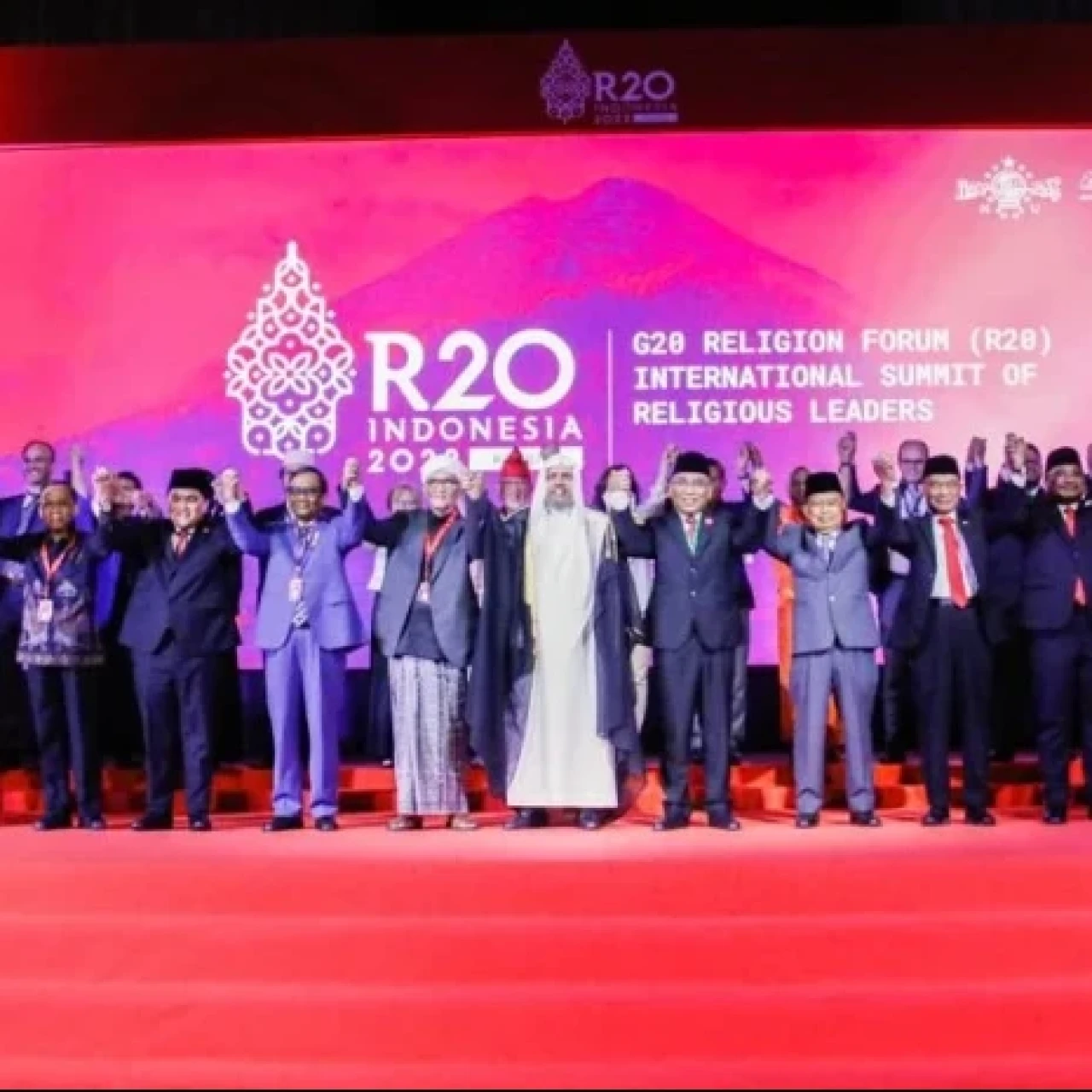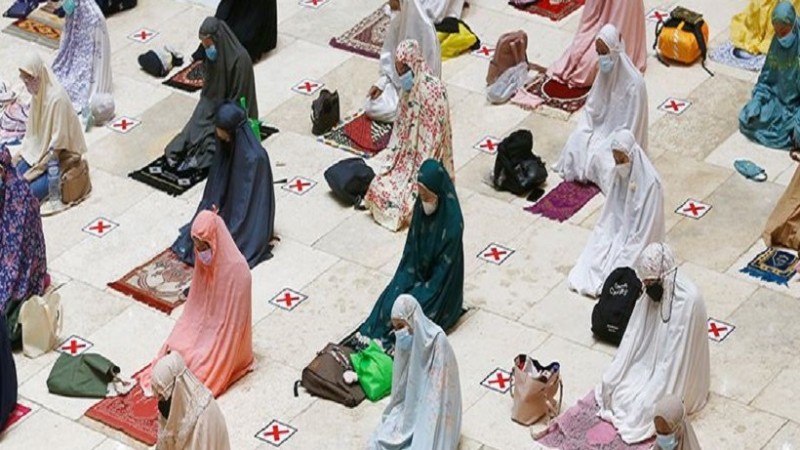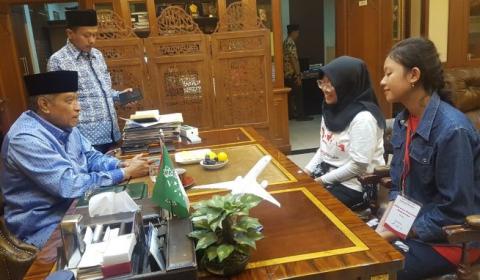Ahmadiyah and problem of misleading religious teachings
NU Online · Senin, 12 Mei 2008 | 04:52 WIB
”Swear by God that this is a slander. I will always defend that my God is not but Allah, Muhammad is the messenger of Allah. I am not of view that Tadzkirah as a holy book. Rather I will defend the 30 chapters of the Qur’an as a holy one.” That is one of excerpts loudly and emotionally voiced by an old woman, the follower of Ahmadiyah in Padang, West Sumatera. (Trans 7/23/04/2008)
The remark was made as a protest over accusation discrediting Ahmadiyah followers in Indonesia. Ahmadiyah is considered to have insulted and streaked both the sacredness and holiness of Islamic teachings. That’s why Ahmadiyah is urged to soon be disbanded and banned in the country by a number of groups regarding themselves as the most sincere groups.<>
The old woman’s remark has made us hesitant and curious on the importance of reconsidering the fatwa (verdict) of the Indonesian Ulema Council (MUI) and the decision of the Coordinating Board for Monitoring Mystical Beliefs in Society (Bakor Pakem) declaring that Ahmadiyah is a misleading sect and should be banned in Indonesia. On what reasons are the MUI and Bakor Pakem taken to judge Ahmadiyah as a sect that is declared out of the pale of Islam?
The matter is important for any Bakor Pakem’s decision and MUI’s fatwa have always met controversy, caused social unrest and triggered horizontal conflicts. Even in a certain level the decision and fatwa may threaten the nation’s integrity. In addition, the decision and fatwa may also aggravate Indonesia’s position in the course of religious freedom in world community.
The astrayness in Islam
The world of astray or dhillun as written in A Dictionary of Modern Written Arabic etymologically means astraying from the right path or from truth.
While theologically the world of dhillun is meant to show the meaning of astrayness from religious formal teachings. The astrayness may be in the form of denying or identifying God with others. The denial means negating and refuting what that should be acknowledged. While identifying God with others means comparing one thing with another that should not be compared.
In the context of Islam as said by Taqiyuddin in “Kifayatul Akhyar” that the denial and the identification of God with others can be through utterance, act and conviction (I’tiqad). In his work Taqiyuddin gives an example that anybody declaring himself as a prophet and acknowledged by others can lead him to be an infidel. This example is perhaps considered as such evidence by the Bakor Pakem to conclude that Ahmadiyah is deviant.
yet the denial upon the messengerness of Mirza Ghulam Ahmad and the refutation of Tadzkirah as a holy book as declared in the excerpts imply that in Ahmadiyah there have been many convictions. This is perhaps the weakness of Bakor Pakem in judging Ahmadiyah.
Ideally the Bakor Pakem should not label Ahmadiyah as a misleading sect for considering that there have been some whose no the same conviction as others’. On the one hand there have been some declaring Ghulam Ahmad as a prophet and Tadzkirah as a holly book and there have been some not on the other.
Avoiding deviation
The matter of deviation is not easy and trivial one in religious ethic. In a certain level this matter would even lead anybody to be deviant. As said by Taqiyuddin that anybody considering other Muslim infidel would lead him/her to be infidel.
Nevertheless the deviation must be avoided in religious life for it is such a decease causing anybody to fail in searching for salvation in religious tradition. In this respect we need to formulate ways and methods in anticipating the deviation in religious life.
The model of labeling others as deviants having always been exampled by both the MUI and Bakor Pakem is not a good model in moving out of deviation. Whereas its negative impacts tend to be more and more instead of expecting to attain a religious life.
For example on account of the MUI’s fatwa and Bakor Pakem’s decision people tend to commit violence against Ahmadiyah followers by damaging their worship places and sparking horizontal conflict. Besides, what conducted by the MUI and Bakor Pakem can threaten religious development. It is even opposed to the spirit of the nation and state’s life.
The most effective way is strengthening religious education. So far the religious education being under the supervision of the Department of Religious Affairs or Islamic boarding schools (pesantren) has not yet run effectively. The strengthening of religious education can be conducted if both MUI and Bakor Pakem as part in formulating strategies and monitoring the religious education aimed at avoiding deviation instead of being new judges and “police” in religious life.
Through religious education it is expected the future of religious life can develop in an expected atmosphere. Deviation can be minimized without hurting anybody else. Through the strengthening of religious education the matter of deviation in religious life would not easily be exploited by instant political interests. Why? Because the labeling others as deviants has always been benefited in pursuing certain political interests.
The writer is student at Sunan Kalijaga State Islamic University Yogyakarta and active at the Komunitas Seniman Santri, Pondok Pesantren Babakan, Ciwaringin, Cirebon, West Java
Terpopuler
1
Khutbah Jumat: Ramadhan dan Kesempatan yang Tidak Selalu Terulang
2
Innalillah, Ulama Mazhab Syafii asal Suriah Syekh Hasan Hitou Wafat dalam Usia 83 Tahun
3
Khutbah Jumat: Ramadhan, Melatih Sabar, Memperkuat Syukur
4
Kultum Ramadhan: Lebih Baik Sedikit tapi Istiqamah
5
Keluar Mani yang Tidak dan Membatalkan Puasa
6
Khutbah Jumat: Tiga Kebahagiaan Orang Puasa
Terkini
Lihat Semua














